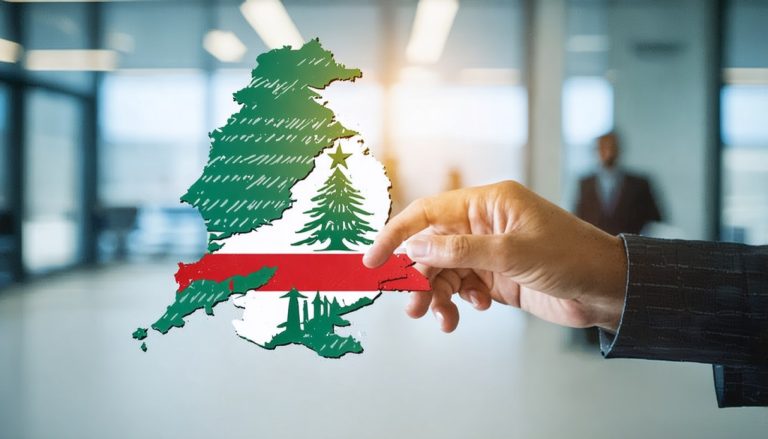
realistic photo of business consulting --ar 16:9 Job ID: dfb22ad3-d75c-4b68-ba70-59bd3f3932b7
Gabon, officially known as the Gabonese Republic, is a sovereign state situated on the west coast of Central Africa. Bordered by Equatorial Guinea to the northwest, Cameroon to the north, the Republic of the Congo on the east and south, and the Gulf of Guinea to the west, Gabon is a relatively small country with significant natural resources, particularly petroleum. As the world’s fifth-largest oil producer, Gabon has a dynamic and vital economy, and its banking and finance laws play a crucial role in streamlining its business environment.
Legal Framework
Gabon’s banking and finance laws are designed to regulate financial transactions, ensuring transparency, stability, and security within the country’s financial system. The legal framework is heavily influenced by French civil law, as Gabon was a French colony until gaining independence in 1960. The primary legislation governing the banking sector includes the Banking Act, the Central African Banking Commission (COBAC) regulations, and the regulations issued by the Bank of Central African States (BEAC).
Banking Sector
The banking sector in Gabon comprises both local and international banks, with several major international banks having established operations in the country. The Bank of Africa, BGFI Bank, Ecobank, and Gabonese Development Bank (BGD) are some prominent examples. BEAC, serving as the central bank for the Central African Economic and Monetary Community (CEMAC) nations, including Gabon, oversees monetary policy, currency issuance, and banking regulations.
Central African Banking Commission (COBAC)
COBAC is a regulatory body under the auspices of BEAC, tasked with supervising and regulating financial institutions within the CEMAC region. COBAC’s responsibilities include ensuring that banks comply with capital adequacy requirements, liquidity standards, and other prudential norms. COBAC regularly audits banks and has the power to impose sanctions for non-compliance.
Financial Market Regulation
The financial markets in Gabon are relatively underdeveloped compared to those in more industrialized nations. However, there are efforts to enhance market participation and create robust financial instruments. The Central African Stock Exchange (BVMAC) is a regional stock exchange that serves multiple CEMAC countries, aiming to facilitate capital raising and investment opportunities. Laws regulating securities, investments, and trading practices contribute to maintaining market integrity and investor confidence.
Foreign Investment and Business Environment
Gabon actively encourages foreign investment, particularly in sectors such as oil, mining, and timber. Banking and finance laws facilitate foreign direct investment (FDI) by ensuring a transparent and predictable legal environment. The Investment Charter of Gabon offers various incentives, including tax breaks and simplified administrative procedures to attract foreign investors.
Anti-Money Laundering (AML) and Counter-Terrorism Financing (CTF)
In recent years, Gabon has strengthened its AML/CTF framework to align with international standards. The Financial Intelligence Unit (ANIF) is responsible for collecting and analyzing financial information to detect and combat money laundering and terrorist financing. Gabon cooperates with regional and international organizations to implement effective AML/CTF measures.
Consumer Protection and Credit Regulation
Gabonese law includes provisions for consumer protection in the financial sector, addressing issues like interest rates, fees, and the transparency of financial products. The regulations mandate clear disclosure of terms and conditions, helping consumers make informed decisions. Credit reporting agencies also operate under specific regulations to ensure accurate and fair reporting of credit histories.
Challenges and Opportunities
Despite its resources, Gabon faces several challenges that impact its banking and finance sector. Issues such as economic diversification, financial inclusion, and the development of infrastructure are areas needing attention. However, the country’s abundant natural resources, strategic position in Central Africa, and ongoing reforms present substantial opportunities for growth and investment.
Conclusion
Banking and finance law in Gabon is a complex yet essential component of the country’s economic framework. With regulatory bodies like BEAC and COBAC ensuring stability and compliance, and an active push towards attracting foreign investment, Gabon is positioning itself as a vital player in the region’s financial landscape. As the nation continues to evolve, its legal and financial systems will play a pivotal role in shaping future economic development.
Suggested related links about Banking and Finance Law in Gabon: Navigating a Unique Landscape
Learn more about Gabon’s banking and finance laws and regulations through the following websites:
International Monetary Fund (IMF)
African Development Bank (AfDB)
Central Bank of West African States (BCEAO)
Economic and Monetary Community of Central Africa (CEMAC)
These resources provide valuable information on the financial landscape, policies, and regulations that influence the banking and finance sector in Gabon.



